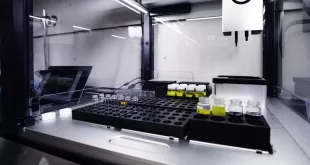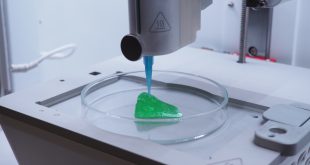By Cheryl Saito
Using speech to help unravel Alzheimer’s disease, frontotemporal dementia, depression, bipolar disorder and schizophrenia, Winterlight Labs stands on the world’s stage with its leading-edge technology.
The University of Toronto startup has received considerable interest from operators of senior care residences and big pharmaceutical companies for its development of a proprietary, tablet-based technology that assesses cognitive health (including memory, thinking and reasoning) by analyzing hundreds of language markers from short snippets of speech. What is also unique to the company’s genetic makeup is that 70 percent of its employees are women.
Founded in 2015 by Frank Rudzicz, Katie Fraser, Liam Kaufman and Maria Yancheva, the organization includes a team of experts in computational linguistics, cognitive neuroscience and machine learning. Their novel AI technology platform quantifies speech and language patterns to rapidly detect and monitor cognitive and mental diseases. Just one minute of speech allows Winterlight Labs to characterize the speaker’s cognitive, acoustic and linguistic state, including lexical diversity, syntactic complexity, semantic content and articulation.
Only a few years into operations, Winterlight Labs has already signed agreements with Johnson & Johnson and biotech firm Alector to develop voice biomarkers for early-stage Alzheimer’s disease and dementia. This year, the company has pole-vaulted into working with five of the top 10 biopharmaceutical companies in the world, including those in Japan, Switzerland, the United States and Germany.
Winterlight Labs’ speech assessment is helping unravel medical mysteries in a dozen clinical studies. Psychiatric scales that rate conditions like geriatric depression and mood disorders, may not detect subtle changes in symptoms, which can slow the progress of drug development in neuroscience. Meanwhile, Winterlight Labs’ technology, which focuses on over 550 features of speech and language, can measure fine-grained changes with their algorithms that traditional assessments cannot. These features are then used to classify heterogeneous disease populations into subgroups, track changes over time, and detect responses to treatment.
“Biopharmaceutical companies historically have had an 80 percent failure rate in clinical trials when it comes to responsiveness to disease modifying therapy,” indicates Liam Kaufman, CEO. This equates to a 20 percent chance of success for a compound entering Phase I trials. Phase II development remains the largest hurdle in drug development, with just 28.9 percent of candidates achieving this critical phase. It isn’t a particularly easy pill to swallow for companies aiming to fight disease.
“It’s important to keep looking for objective means to measure cognitive function, and digital mental health therapy is on the increase using modern technology to improve the prevention and treatment of anxiety, depression and other mental health conditions,” explains Kaufman.
This means partnering with several digital mental health start-ups. One of Winterlight Labs’ largest projects at the moment is working with an organization called Cortexyme, a clinical-stage biopharmaceutical company pioneering upstream therapeutic approaches for patients with Alzheimer’s and other degenerative diseases.
“We are currently undergoing a clinical trial with 600 participants that will be completed at the end of September. What is unique about this trial is its different approach to the originating factors of Alzheimer’s disease, which traditionally focus upon amyloid causes whereby proteins build up on organs like the heart, kidney and liver.” Some researchers are exploring other potential causes, such as gum disease.
“Alzheimer’s and other types of neurodegenerative conditions are one of the biggest challenges we are facing as a society, and it will only become a bigger problem in the future,” explains Yancheva, the company’s CTO. With over 500,000 Canadians living with dementia today, modelling projections predict numbers will increase to almost one million by 2030. And since more than 65 percent of these will be women, it is fitting that Winterlight Labs, a company focused on improving the lives of people with dementia and psychiatric illness, is predominantly female.
Kaufman recognizes that the company’s gender diversity is unique. But he doesn’t see it remaining this way in the pharmaceutical industry, with more and more women entering the field.
In 2016 only three women were in a senior executive role at 20 of the most profitable pharmaceutical companies. Not one of these companies had a female chief executive. Fast forward a few years and research among the top 10 pharmaceutical companies shows that the number of women executives grew to over 25 percent.
“At Winterlight, I can attribute our diversity to a couple of things. Firstly, the company has four co-founders, two of whom are women. Secondly, if people visit our ‘About’ page, they will see our gender diversity as representative of the company and likely identify with our organization as one in which they would like to work.”
Kaufman believes that a culture of inclusivity and visibility for women in research can benefit any organization. “I truly believe that in the next five to 10 years ,we will see bio-pharma science at a 50/50 split between men and women.” It’s a forward-thinking vision for a company that’s already far ahead of the curve in science and gender diversity.
 BioLab Business Magazine Together, we reach farther into the Canadian Science community
BioLab Business Magazine Together, we reach farther into the Canadian Science community





